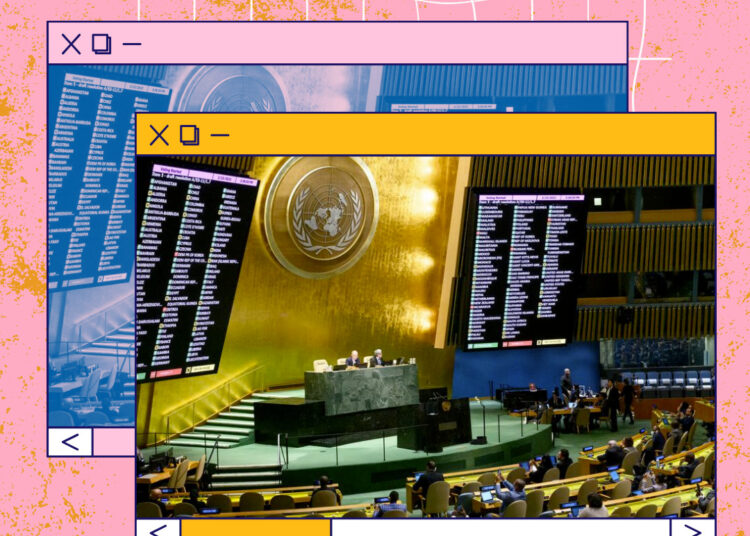The United Nations General Assembly, widely referred to as UNGA, met for the 78th time back in September for the annual high-level meeting. All leaders and monarchs of all 193 United Nations members were invited. New Yorkers know of it as road closure mayhem similar to what those close to Glastonbury experience each year.
Why is it a thing?
The United Nations was created following the events of World War II with an international intention for peace and prosperity. UNGA is the meeting of the representatives from each country where decisions and critical policy decisions are taken.
There was a lot to discuss with the continuing war in Ukraine, lingering impacts of coronavirus, natural disasters, political turmoil in Latin America and West Africa, and global economic instability.

This year’s theme had a brief, snappy title:
“Rebuilding trust and reigniting global solidarity: Accelerating action on the 2030 Agenda and its Sustainable Development Goals towards peace, prosperity, progress and sustainability for all.”
Noticeably for the UK was the absence of the Prime Minister.
How does it work?
UNGA centres around the general debate. A moment where each member has a 15-minute speech to outline the work and policy calls from their nation usually. The length usually exceeds this (the longest was 269 minutes in 1960).
At the end of each day, there’s a moment open for other members to debate or support the speeches. These can lead to some fierce debate.

Is this relevant to me?
In a line, not dramatically nor immediately. But any views voiced by the United Nations have an impact on all. Listening to the views represented at the UN directly relates to policy changes within nations.
So what happened this time?
The UK used their speech to put Artificial Intelligence (AI) at the front and centre. The Deputy Prime Minister Oliver Dowden, used the speech to confirm the UK as a leader in AI.
Sudan’s military leader spoke about how the war in Sudan could expand beyond its own borders.
The UN Chief spoke to the climate crisis, with those nations with high carbon emissions remaining silent.
Okay, so how is this feminist?
Gender equality is a key principle of the UN. One would think there’d be an expectation to see this among the people and words shared at UNGA.
I picked out three key highlights from this year, none which speak directly to protecting the rights of anyone. This is intersectional. This is feminism. And we should all be aware that what the UN says and the words used within its walls, provide no comfort that equality is at its centre.
Migration, climate change and war all impact people across the world. Those who should be protected, who are most at risk, never made it into speeches. This should be known to us all. There is yet more work to be done by the UN on women’s rights, beyond the niceties of UN Women. The recent events in Israel over the past few days are a stark reminder of the role the UN should have in protecting the most vulnerable.













